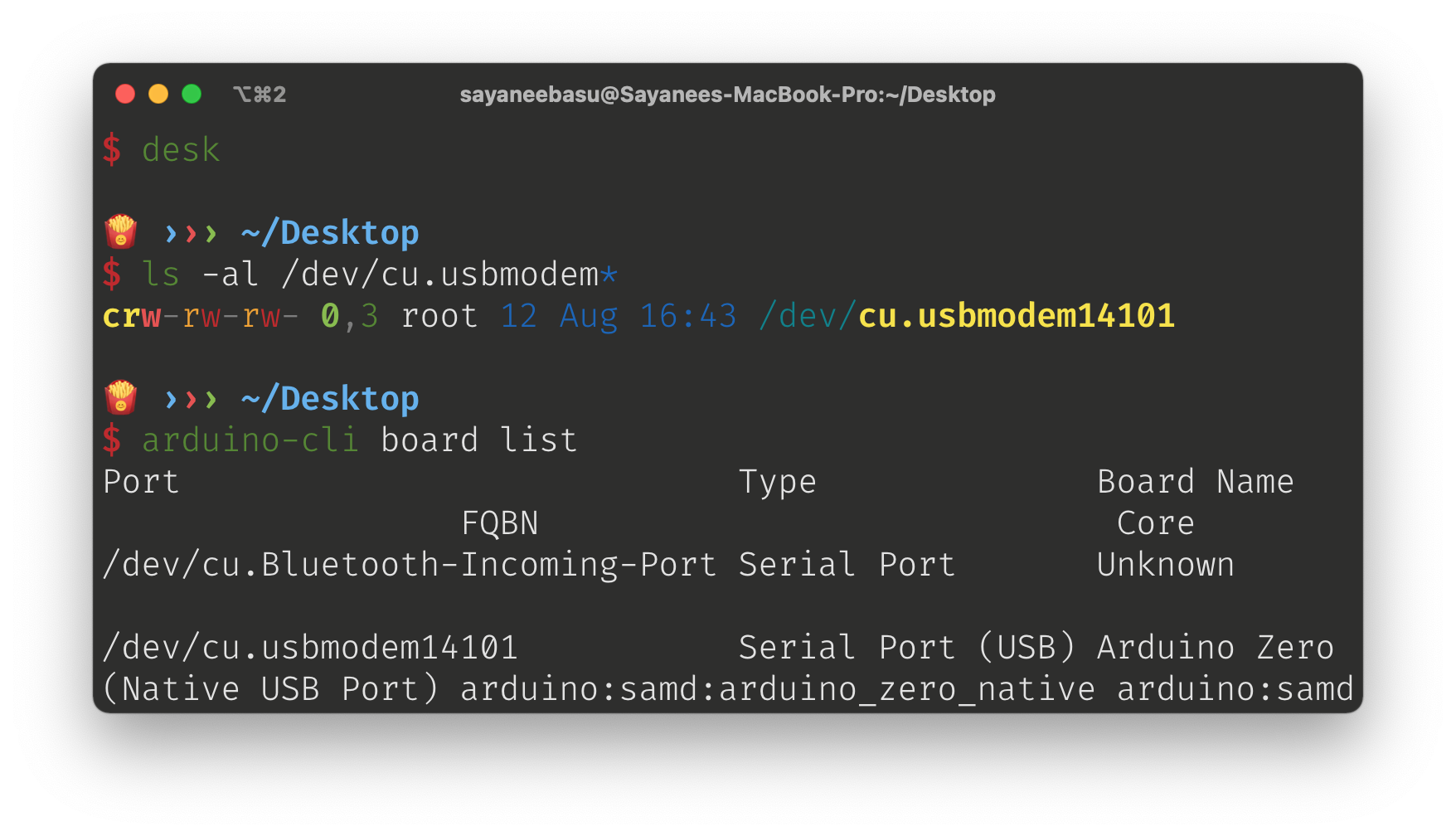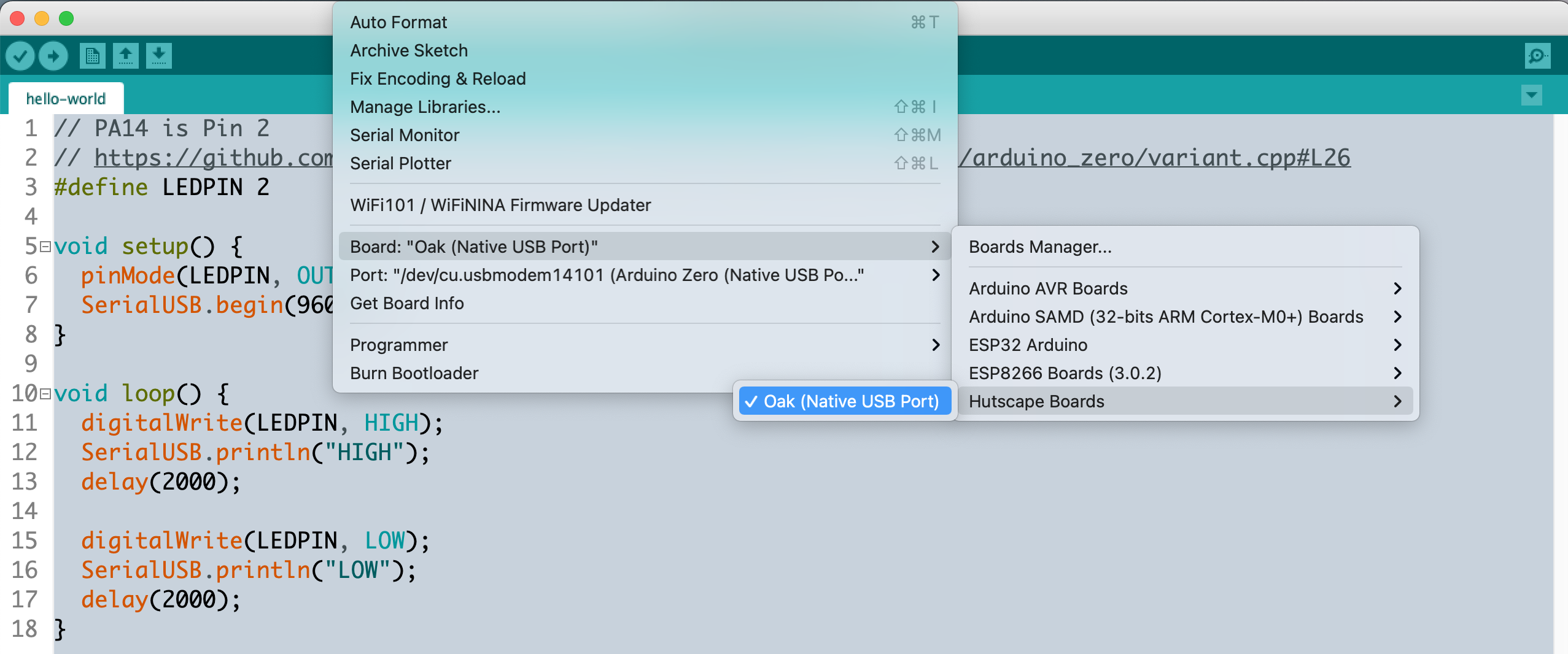Dependancies
Pre-requisites
🌳 An outdoor LoRa-GPS tracker with an E-Ink display 🔑
LoRa transmit and receive from destination address approximately at the same time
Dependancies
Pre-requisites
Run both nodes AA and BB at the same time to exchange an integer.
This example can be run battery-powered. The LED will blink when the node sends out a packet.
ls -al /dev/cu.usbmodem and arduino-cli board list. Run make to compile and upload the code to the board.


#include <LoRa.h>
#include <SPI.h>
int counter = 0;
#define LEDPIN 2
int ledState = LOW;
#define RADIO_CS_PIN 5 // D5 on Arduino Zero
#define RADIO_DI0_PIN 11 // D11 on Arduino Zero
#define RADIO_RST_PIN 6 // D6 on Arduino Zero
#define LORA_FREQUENCY 915E6 // 915 MHz Antenna and LoRa module
byte localAddress = 0xAA;
byte destinationAddress = 0xBB;
long lastSendTime = 0;
int interval = 2000;
void setup() {
SerialUSB.begin(9600);
pinMode(LEDPIN, OUTPUT);
SerialUSB.println("Starting LoRa duplex on node "
+ String(localAddress, HEX));
pinMode(LEDPIN, OUTPUT);
LoRa.setPins(RADIO_CS_PIN, RADIO_RST_PIN, RADIO_DI0_PIN);
if (!LoRa.begin(LORA_FREQUENCY)) {
SerialUSB.println("Starting LoRa failed!");
while (1) {
}
}
}
void loop() {
if (millis() - lastSendTime > interval) {
String sensorData = String(counter++);
sendMessage(sensorData);
SerialUSB.print("Sending data " + sensorData);
SerialUSB.print(" from 0x" + String(localAddress, HEX));
SerialUSB.println(" to 0x" + String(destinationAddress, HEX));
lastSendTime = millis();
interval = random(2000) + 1000;
// Toggle LED
ledState = !ledState;
digitalWrite(LEDPIN, ledState);
SerialUSB.println("LED state " + String(ledState));
}
receiveMessage(LoRa.parsePacket());
}
void sendMessage(String outgoing) {
LoRa.beginPacket();
LoRa.write(destinationAddress);
LoRa.write(localAddress);
LoRa.write(outgoing.length());
LoRa.print(outgoing);
LoRa.endPacket();
}
void receiveMessage(int packetSize) {
if (packetSize == 0) return;
int recipient = LoRa.read();
byte sender = LoRa.read();
byte incomingLength = LoRa.read();
String incoming = "";
while (LoRa.available()) {
incoming += (char)LoRa.read();
}
if (incomingLength != incoming.length()) {
SerialUSB.println("Error: Message length does not match length");
return;
}
if (recipient != localAddress) {
SerialUSB.println("Error: Recipient address does not match local address");
return;
}
SerialUSB.print("Received data " + incoming);
SerialUSB.print(" from 0x" + String(sender, HEX));
SerialUSB.println(" to 0x" + String(recipient, HEX));
}BOARD?=hutscape:samd:oak
PORT := $(shell ls /dev/cu.usbmodem*)
BUILD=build
.PHONY: default lint all flash clean
default: lint all flash clean
lint:
cpplint --extensions=ino --filter=-legal/copyright,-whitespace/line_length,-readability/casting,-readability/todo,-runtime/int *.ino
all:
arduino-cli compile --fqbn $(BOARD) --output-dir $(BUILD) ./
flash:
arduino-cli upload -p $(PORT) --fqbn $(BOARD) --input-dir $(BUILD) --verbose
clean:
rm -r build